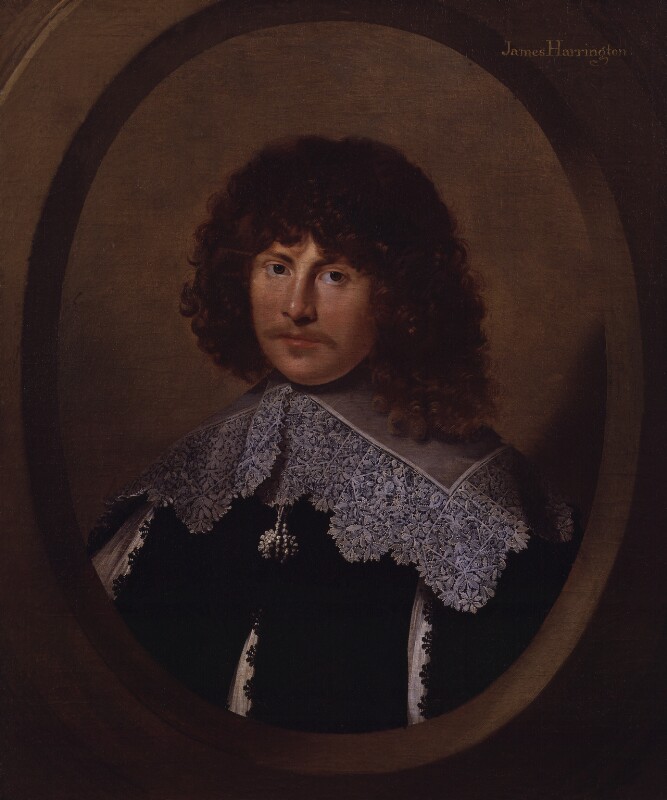Given that this is my twelfth monthly blog, it seems a good moment to reflect on where I have got to, and on plans for the year to come. The blog posts have been anchored in the twin themes of Harrington and grief, but have ranged widely, exploring such topics as: the origins of modern democratic government; the life of the Queen of Bohemia; seventeenth-century wills and grave monuments; and the origins and uses of the Virgilian phrase 'Mens Molem Agitat'. In the course of the year my Harrington project, originally inspired and gifted to me by my late husband John Gurney, has blossomed. At the end of this month I will embark on a Mid-Career fellowship, kindly funded by the British Academy, which will provide me with the opportunity to complete my research on Harrington and to finish writing an intellectual biography of him. This will be published by Oxford University Press. Having spent the last two posts considering intellectual biography as a form, I want to say a little more here about my plans for my intellectual biography of Harrington and the work that I will do more generally during my fellowship.
James Harrington by an unknown artist c. 1635. National Portrait Gallery, NPG513. Reproduced under the National Portrait Gallery's Creative Commons Licence.
As I noted in last month's blog, one reason why I see the intellectual biography as a useful form, and one particularly appropriate to Harrington, is the opportunity it provides to acknowledge the interconnection between the external life and actions of the subject and the internal life of the mind. This seems particularly appropriate to a political thinker who was keen for his writings to have an impact on the politics of his own day. Much of the focus on Harrington to date has been on his writings rather than his life, largely because no personal papers have survived, making reconstruction of that life difficult. Yet information about his life can be gleaned from other sources and, as I argued in my paper at the workshop, integrating discussion of Harrington's life and works complicates and enriches our understanding of both. In particular, uncovering details of his life before 1656, not least his positive relations with members of the Stuart family, raises questions about the nature and extent of his commitment to republican government. Thus, one of the key arguments of my book will be that while Harrington did advocate republican government to some degree, the nature of his republicanism was not typical of the time; and he challenged, and even subverted, conventional republican ideas and practices.
James Harrington after Sir Peter Lely, based on a work of c. 1658. National Portrait Gallery, NPG41090. Reproduced under the National Portrait Gallery's Creative Commons Licence.
As well as complicating our understanding of the precise kind of republican government that Harrington was committed to, the book will also argue that a more comprehensive account of Harrington's life and thought can be produced if we move beyond the recent obsession with his republicanism. During my fellowship I will explore Harrington's contribution to four other fields of thought. First, there is his status as an historian. Harrington might be seen as rather traditional in his attitude to history, given his belief that past (particularly ancient) models can be utilised in the present. Yet, in fact, his approach was dynamic. Rather than simply seeking to revive and apply such models in the present, he approached them as a basis for future innovation. Harrington was also innovative in being one of the first thinkers to address the causes of the English Civil War, offering a distinctive long-term explanation for the outbreak of that event. Secondly, I will examine Harrington's contribution to religious debates of the age, particularly those concerning the Hebrew Commonwealth and the method of ordination within the church. Here, too, Harrington adopted a novel position, combining religious toleration with a national church, and Erastianism with democratic church government. Thirdly, I will pay attention to Harrington's philosophical thinking. His complex understanding of the relationship between body, reason and spirit underpinned his entire political model, but also set him at odds with leading thinkers of the day, particularly those associated with the Royal Society. Finally, it is my contention that Harrington was innovative not just in the content of his works, but also in their form and style. His literary interests, including his translations of the works of Virgil, have largely been ignored by historians of political thought; and the fundamental importance of the interaction between form and content in The Commonwealth of Oceana is only just beginning to be uncovered. Yet just as Harrington's philosophical thinking underpinned his politics, so the content of his works was reflected in and demonstrated by the form in which it was expressed.
Harrington's playfulness when it comes to the form and style of his work is not just something I plan to investigate, but also something I have been attempting to imitate, not least through this blog. During the fellowship, then, I will continue my monthly posts, but the focus will shift slightly. In each one I will use Harrington's ideas as a springboard for approaching contemporary political issues. The topics may evolve as the year progresses, but are likely to cover such topics as: republics versus monarchies; what is democracy?; holding representatives to account; and popular initiative in a parliamentary system.
The fellowship begins in October and these posts will start in November, once the project is properly underway. For October I have a final more anecdotal post about coinage, which seems appropriate to the month in which the version of the pound coin that has been in circulation since 1983 will cease to be legal tender, being replaced by a new twelve-sided design.






